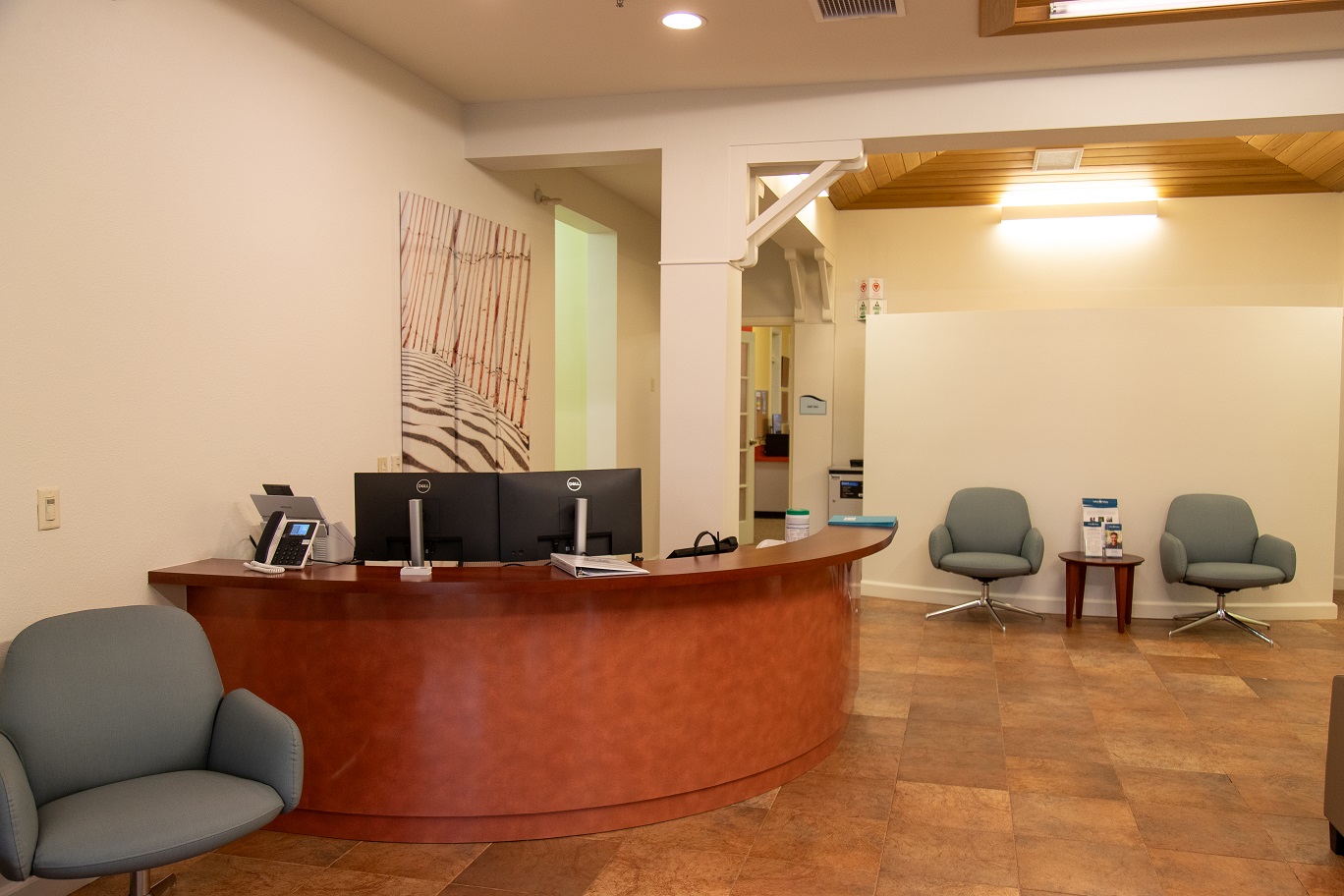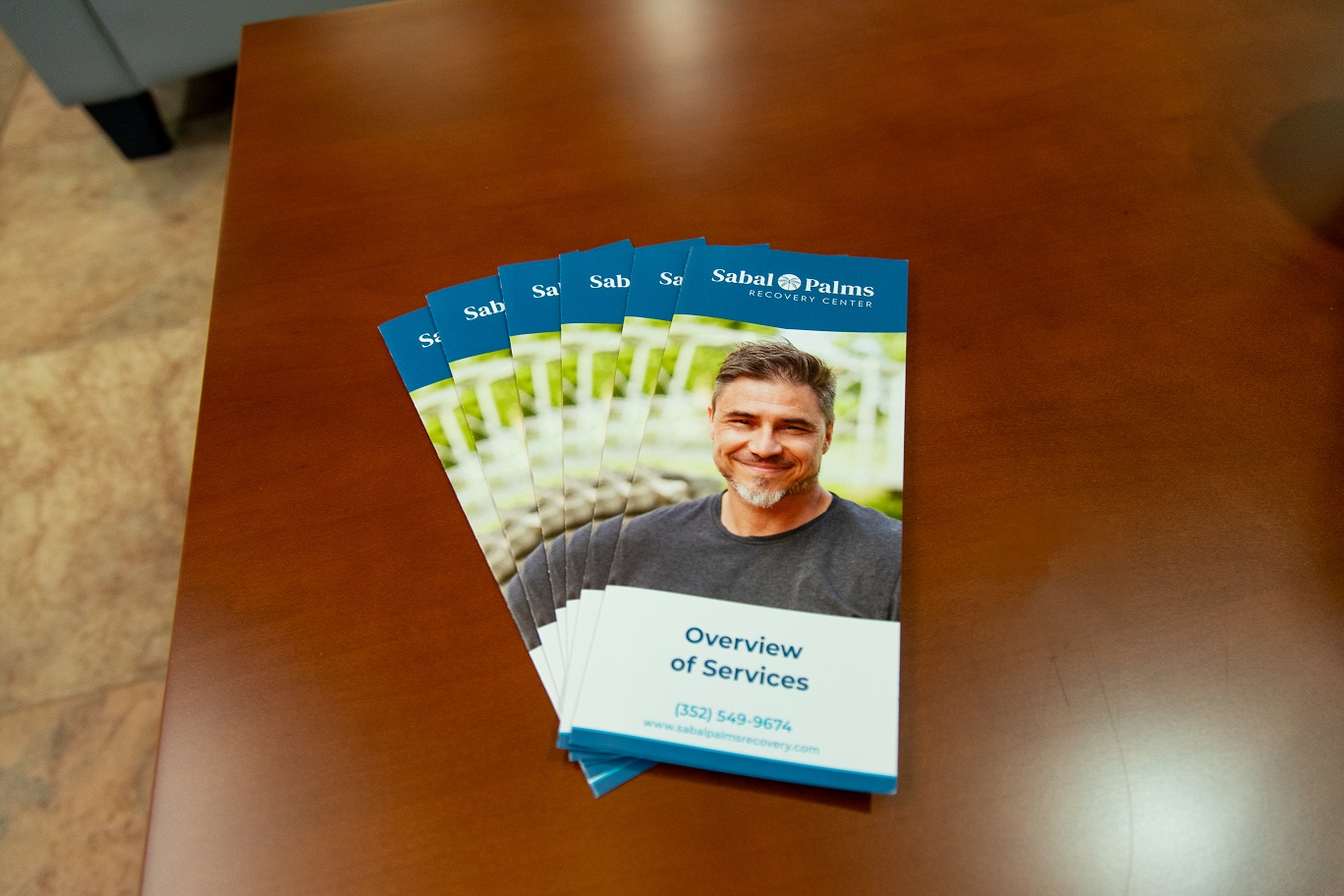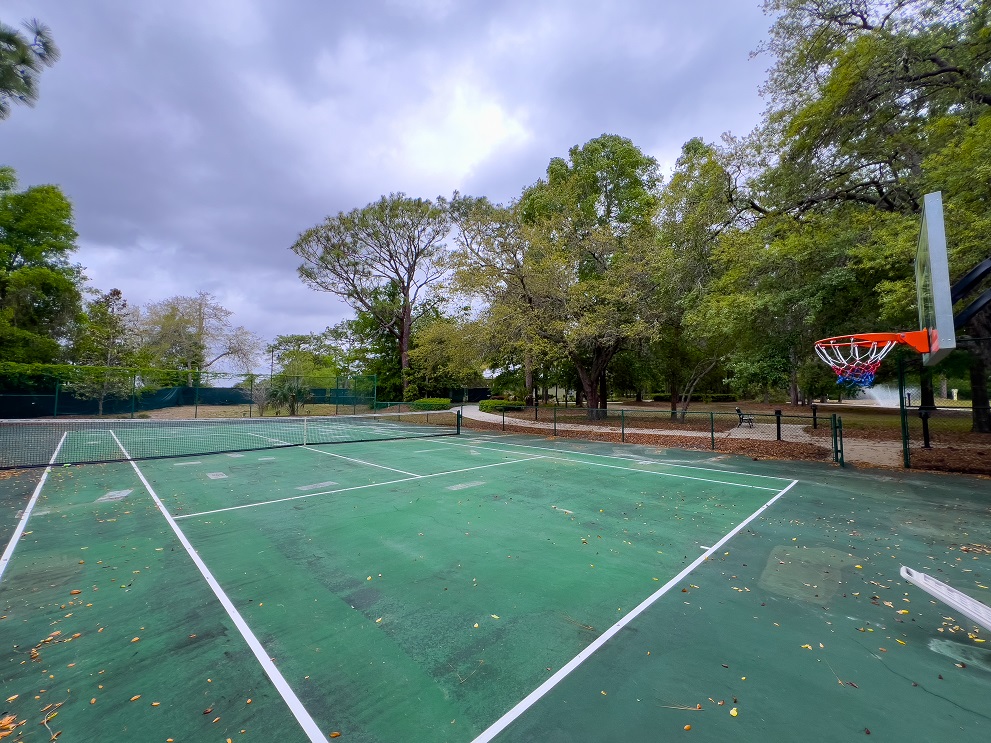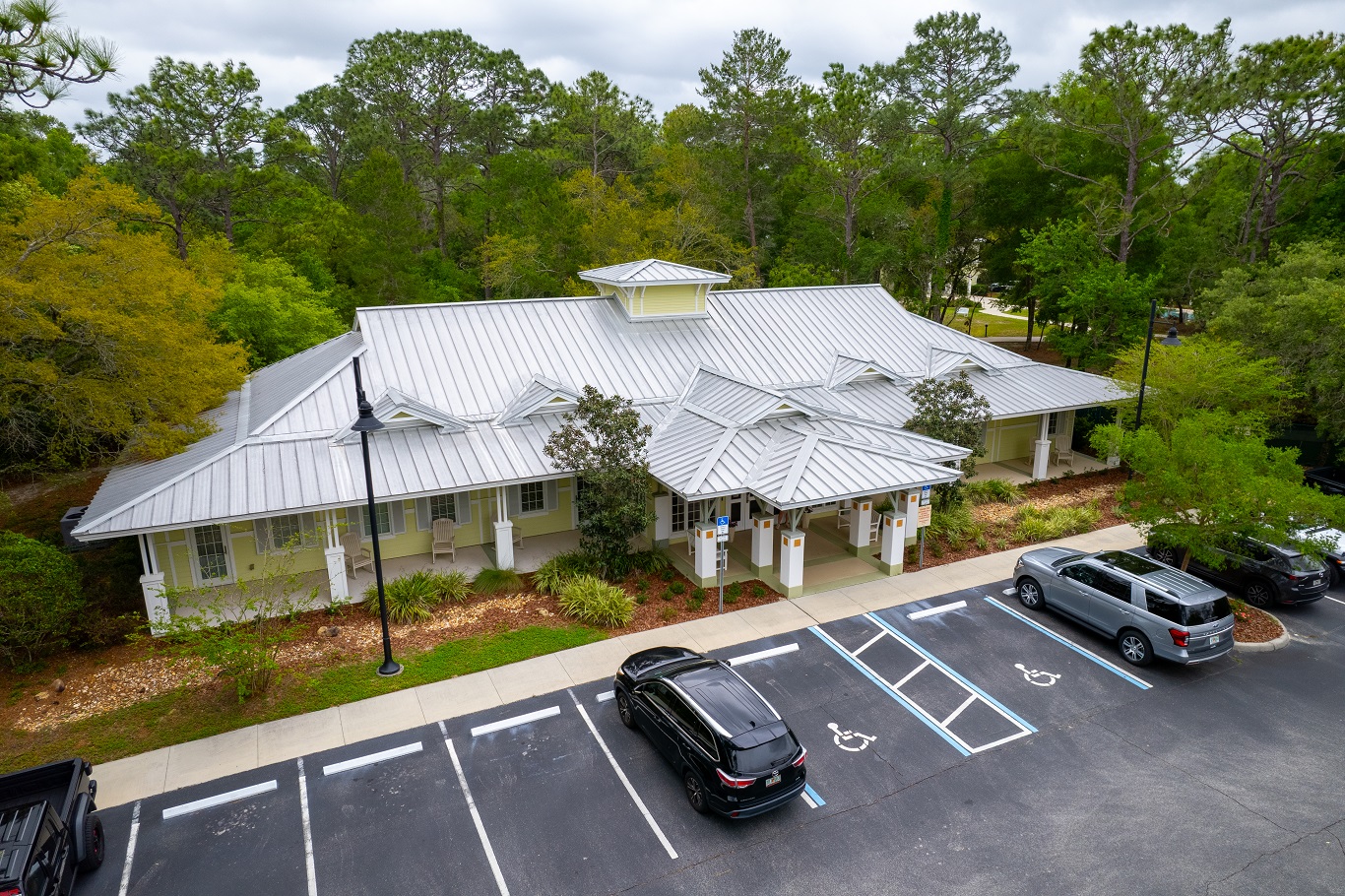Located in Brooksville, Florida, Sabal Palms Recovery Center provides clinically excellent care for adults age 18 and older who are living with addictions and co-occurring mental health concerns. We provide our clients with the emotional support and evidence-based services they need to overcome substance use disorders and make positive behavior changes that promote healing.
Understanding Addiction
Addiction is a complex condition that is characterized by compulsive substance use regardless of harmful outcomes. Substance use disorder impacts people from all walks of life and can affect a person’s physical and mental well-being, emotional wellness, relationships, career, and financial health. While addiction is considered a chronic condition, it is treatable, and with the right support, those who are suffering can regain control of their lives and maintain long-term recovery.
Addiction is a progressive disease, which means that it can worsen over time. Understanding the cycle of addiction can help you recognize the importance of seeking care promptly. With the right type and level of care, you can overcome the compulsion to use alcohol or other drugs and work toward a brighter future.
The process of addiction typically involves the following stages:
- Initial use: People may use a substance for the first time out of curiosity or because of social influences. One of the many risks of using alcohol or other substances is that the behavior can lead to addiction.
- Problematic use: If someone continues to use drugs or alcohol regularly, they will begin to develop a tolerance. This means that they will need larger amounts of the substance to achieve the same effect. At this stage, substance use becomes more frequent, and the negative impacts of drug or alcohol abuse may become evident.
- Dependence: When a person tries to end their substance use, they may experience painful or even dangerous withdrawal symptoms.
- Addiction: In the final stage, a person loses the ability to control their substance use despite harmful consequences.
To end the dangerous cycle of addiction, it’s imperative to seek the help of a professional. The holistic and individualized care we provide at Sabal Palms Recovery Center can help you break the grips of addiction and begin to live a more productive and fulfilling life.
Signs & Symptoms of Addiction
When a person develops an addiction, they experience shifts in the way they think, feel, and behave. These shifts vary from person to person and can be gradual for some and extreme for others.
Signs and symptoms of addiction can include:
- Using a substance for a longer period of time or in larger doses than you planned
- Spending increasing amounts of time acquiring, using, and then recovering from the use of a substance
- Powerful cravings for a substance that may sometimes lead to taking extreme or illegal action to get the substance
- Using a substance alone or secretively
- Using a substance every day or even many times during the day
- Lying to friends or loved ones about how much or how often you’re using a substance
- Developing a need to use more of a substance to achieve the same effects you once experienced with less of the substance
- Experiencing withdrawal symptoms when you’re not using a substance as much or as often as you usually do
- Using a substance even when it has had negative effects on your life in the past
- Using a substance when it is dangerous or inappropriate to do so
- Using a substance to manage stress or to feel pleasure
- Trying and failing to end or reduce the use of a substance
Anyone who is experiencing symptoms of addiction should consult a qualified behavioral health professional. Addiction experts at Sabal Palms Recovery Center in Brooksville, Florida, can help you learn to manage your addiction symptoms and chart a path to recovery.
Common Causes of & Risk Factors for Addiction
There is no single reason why someone develops an addiction. Addictions may result from genetic, environmental, and social factors.
Addiction causes and risk factors can include:
- Family history of substance abuse
- Poor coping skills
- Abuse or neglect experienced as a child
- Exposure to trauma, such as being assaulted or attacked
- High stress levels
- Taking prescription painkillers for an injury or illness
- Cultural pressure to use substances
- Emotional, sexual, or physical abuse experienced as an adult
- Peer groups that use or abuse substances
- Personality traits, such as impulsiveness
- Co-occurring disorders
Researchers continue to study why one person might develop an addiction and another person might not. Whatever the reasons, it is important to understand that addiction has nothing to do with the strength of a person’s character.
Addiction Statistics
The Substance Abuse and Mental Health Services Administration (SAMHSA) reports the following addiction statistics:
- More than 20 million Americans struggled with addiction in the past year.
- Alcohol addiction is the most common form of addiction, affecting more than 14 million Americans over the age of 12.
- Addiction is most common in young adults, affecting about 15% of adults ages 18-25.
- An estimated 13% of Americans who have a substance use disorder, or 2.7 million people, are struggling with an addiction to alcohol in addition to an addiction to another substance.
Potential Effects of Addiction
Because addiction alters the way a person’s brain works, the effects can be harmful and even devastating.
The effects of addiction can include:
- Poor performance at work or school
- Difficulty getting or keeping a job
- Hopelessness
- Overdose
- Suicidal ideation
- Death by suicide
- Strained or ruined relationships with loved ones
- Medical problems
- Neglecting regular activities
- Failing to meet responsibilities at work, home, or school
- Legal trouble
- Changes in weight or energy levels
- Poor self-care or grooming
- Financial problems
- Problems with thinking, memory, or judgment
- Drug cravings that make it difficult to focus on tasks
If you or your loved one is experiencing these or other effects of untreated addiction, it may be time to reach out to a mental health professional at Sabal Palms Recovery Center.
What Happens During Withdrawal?
As a person struggles with substance abuse, their body adapts to the substance or substances they’ve been using. When they attempt to stop or reduce this substance use, they can experience a variety of distressing withdrawal symptoms. While withdrawal symptoms can be different depending on the type of substance a person has been using, some symptoms may be the same regardless of the substance, including:
- Powerful cravings for the substance if you’re not getting as much as you’re used to
- Gastrointestinal problems, such as nausea, vomiting, and diarrhea
- Body aches and pains
- Fever
- Irritability
- Depression
- Paranoia
- Difficulty eating
- Tremors
- Seizures
If a person tries to get through withdrawal on their own, the physical and psychological pain can quickly interfere with their attempts to end their substance use. Our facility offers detoxification services that can help you remain comfortable throughout the withdrawal process.
What Happens If I Have an Addiction Relapse?
If you experience a relapse, it’s crucial that you seek help immediately. Addressing addiction relapse proactively can help you get back on the path to recovery. It’s important to remember that relapse is not a sign of failure, but it may indicate that you need increased support. Those who are struggling can reach out to their mental healthcare provider, a qualified counselor, loved ones, or a support group for help.
At Sabal Palms Recovery Center, we can help you safeguard against relapse by teaching you coping skills you can implement when you transition back to your daily life. When you leave our facility, we ensure that you have access to ongoing support by providing you with a detailed continuing care plan that can include recommendations for follow-up services and local resources.
Common Underlying or Co-Occurring Disorders
It’s not uncommon for someone who is battling addiction to also struggle with a mental health concern, which is known as a dual diagnosis. Dual diagnosis is complex and can make the recovery process more challenging. The coexistence of mental health and substance use disorders can exacerbate symptoms, which can lead to a higher likelihood of social isolation, strained relationships, and self-harm.
If you are experiencing disruptive symptoms of addiction, we encourage you to contact our team at your earliest convenience. We provide comprehensive and integrated care that can effectively treat addiction and any co-occurring concerns you may be struggling with.
To ensure that you receive the care you need, we conduct an in-depth assessment that can help us identify underlying concerns and create a customized care plan that fully addresses your needs. Addiction is a treatable condition, and our compassionate staff can help you confidently embark on your journey to lasting wellness.



































